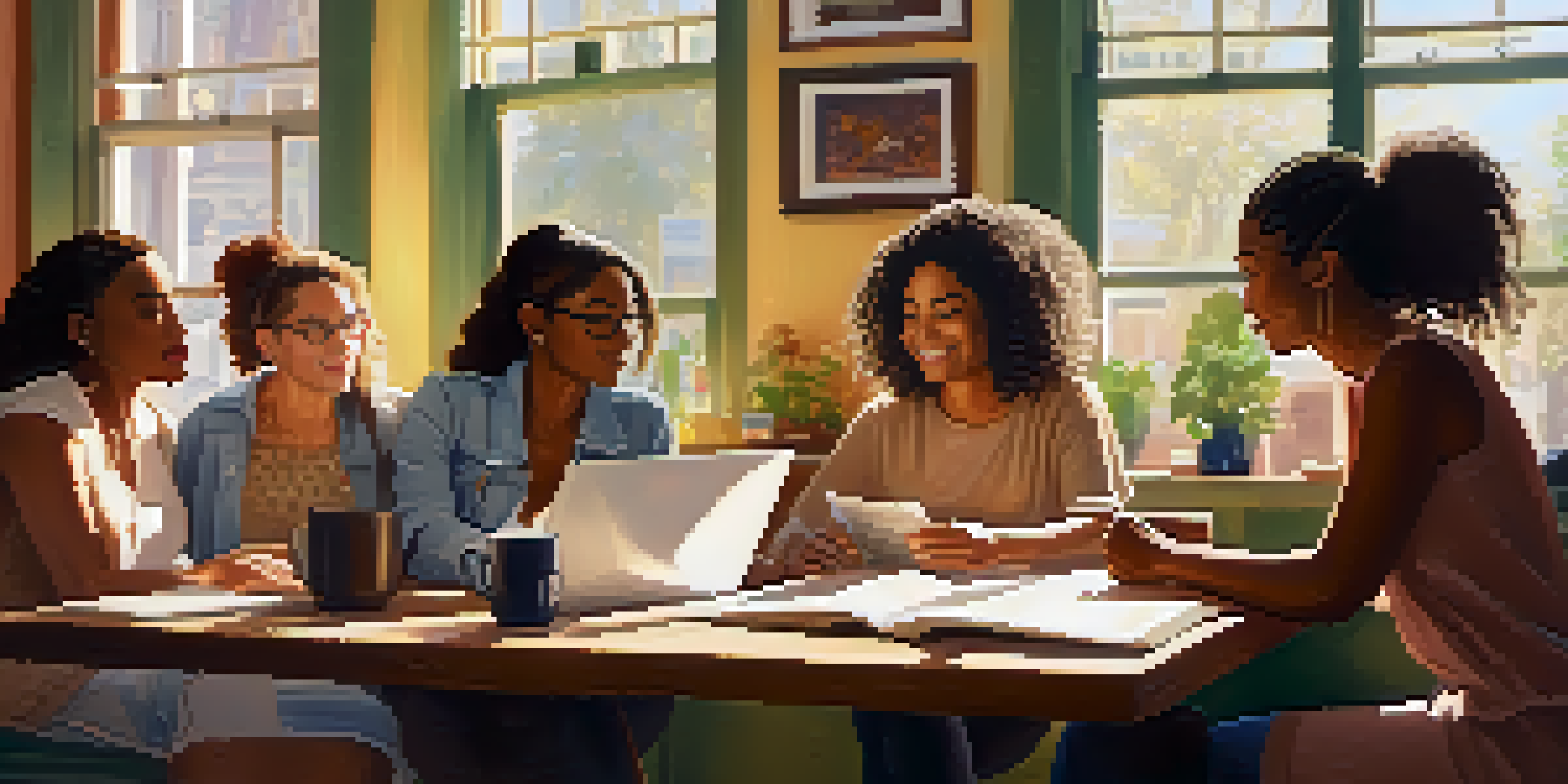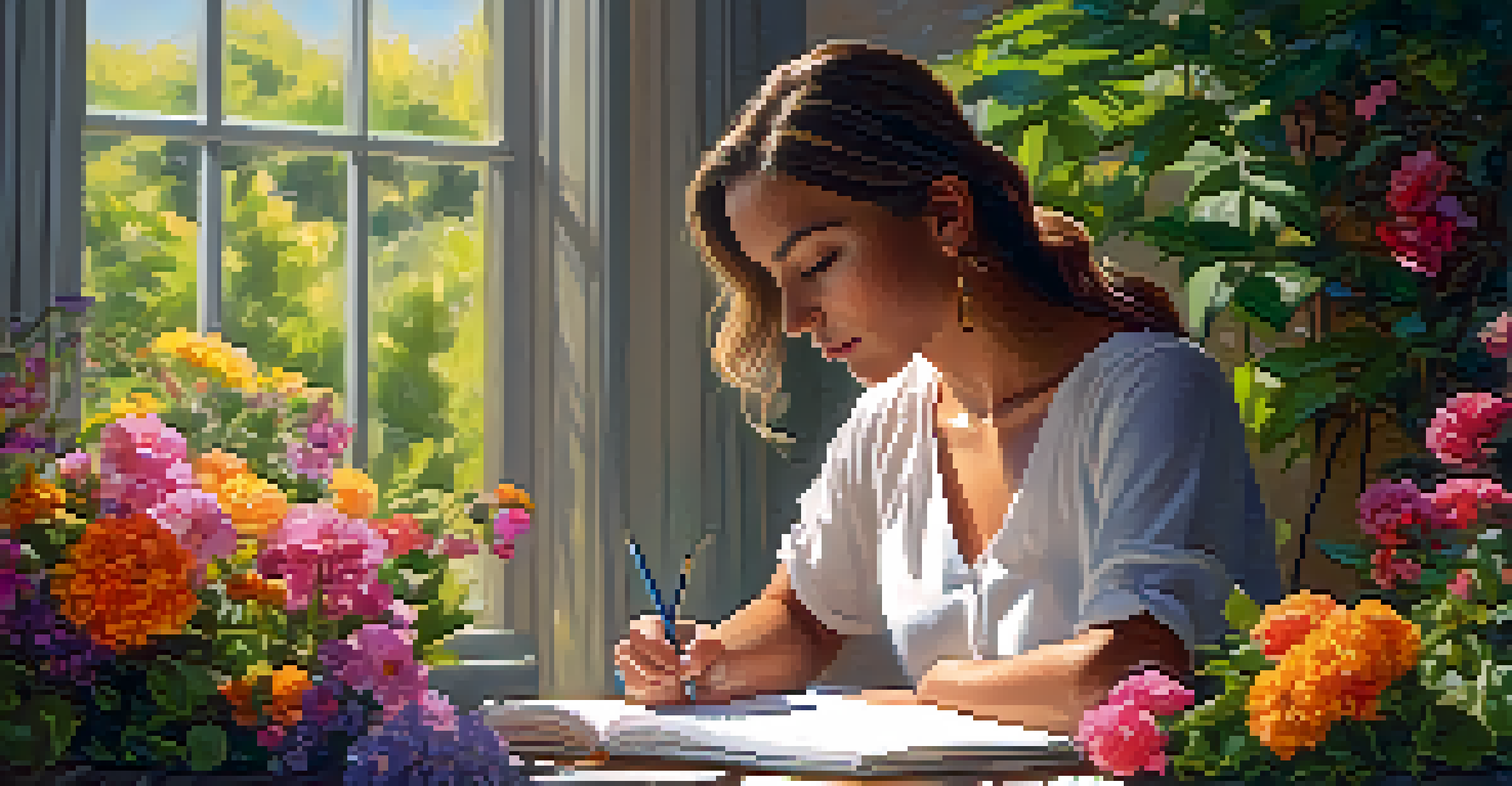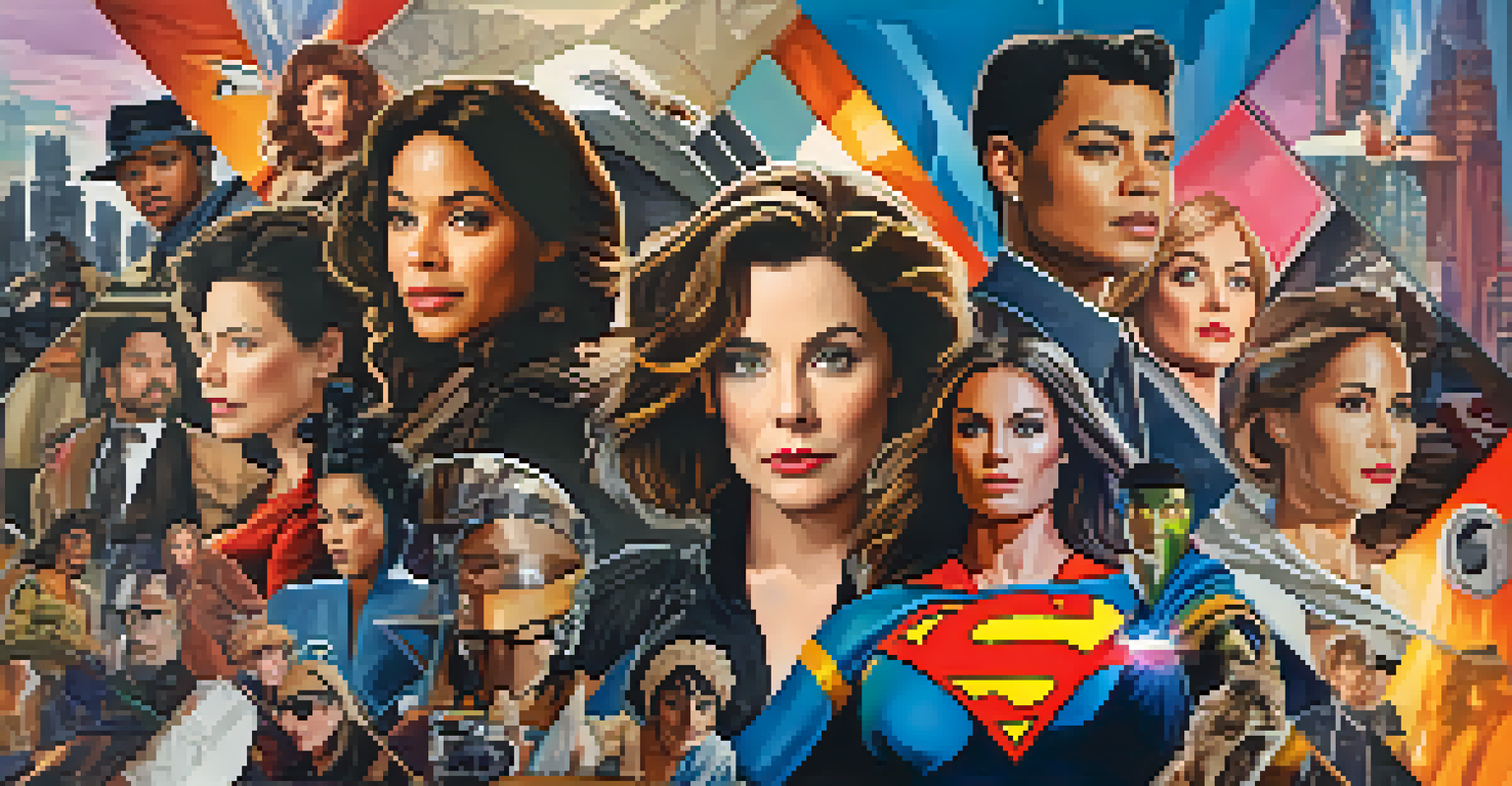Women Writers: Crafting Compelling Narratives in Film

The Impact of Women Writers on Film Narratives
Women writers have brought fresh perspectives to the film industry, enriching narratives with diverse experiences. Their unique viewpoints often challenge traditional storytelling norms, leading to more relatable characters and plots. This impact is seen in various genres, from drama to comedy, where women’s voices shine through.
Women are the largest untapped reservoir of talent in the world.
Consider films like 'Little Women' and 'The Farewell,' both penned by women, which showcase complex female relationships and cultural nuances. These narratives often resonate deeply with audiences, highlighting the importance of representation in storytelling. As women writers continue to emerge, they reshape the cinematic landscape.
The growing recognition of women writers in film signals a shift towards more inclusive storytelling. With awards and accolades acknowledging their contributions, the industry is beginning to understand the value of diverse narratives. This evolution not only enriches films but also encourages future generations of women storytellers.
Breaking Stereotypes Through Storytelling
Women writers have a unique ability to break stereotypes and challenge societal norms. By writing characters that defy traditional roles, they inspire viewers to rethink preconceived notions about gender and identity. This is evident in films like 'The Hunger Games,' where a strong female lead takes center stage, showcasing resilience and courage.

These stories empower audiences, particularly young women, to embrace their individuality. They provide role models who navigate complex challenges, illustrating that strength comes in many forms. Through compelling narratives, women writers help dismantle barriers and encourage self-acceptance.
Women Writers Enrich Film Narratives
Women writers bring fresh perspectives to film, challenging traditional norms and enhancing storytelling with diverse experiences.
Moreover, breaking stereotypes is not just limited to characters; it extends to themes and story arcs. Women writers often explore topics like mental health, sexuality, and family dynamics, offering a holistic view of human experience. This nuanced approach makes their narratives not only relatable but also transformative.
Collaboration and Community Among Women Writers
The film industry thrives on collaboration, and women writers often support one another in their creative endeavors. This sense of community fosters an environment where ideas can flourish and innovation can thrive. Initiatives like mentorship programs and writing workshops have become vital in nurturing female talent.
The best way to predict the future is to create it.
Women writers are increasingly forming collectives, pooling their skills to create impactful stories together. This collaborative spirit not only strengthens their narratives but also amplifies their voices in a competitive industry. Working together, they can share resources and navigate challenges more effectively.
Additionally, these communities often extend their influence beyond the screen, advocating for greater representation in all aspects of filmmaking. By standing together, women writers are not just carving out a space for themselves but also paving the way for future generations of creatives.
Exploring Diverse Genres and Themes
Women writers are making significant strides across various film genres, from horror to romance. They bring fresh ideas and approaches, often incorporating elements that resonate with contemporary audiences. For instance, films like 'A Wrinkle in Time' blend fantasy with important themes, such as self-discovery and acceptance.
In addition to genre diversity, women writers are unafraid to tackle complex themes that reflect societal issues. They weave narratives that address topics like race, gender inequality, and mental health, making their stories both entertaining and thought-provoking. This ability to delve into deeper issues sets their work apart in the film landscape.
Breaking Stereotypes Through Film
By creating characters that defy traditional roles, women writers inspire audiences to rethink gender and identity.
Moreover, this genre exploration allows for more innovative storytelling techniques. Women writers often experiment with narrative structures, using non-linear timelines or multiple perspectives to enrich the viewing experience. This creativity keeps audiences engaged and eager for more unique stories.
Women Writers in Leadership Roles
The presence of women writers in leadership roles has been on the rise, influencing the direction of film projects. As directors and producers, they have the power to shape narratives from inception to completion. Their perspectives bring authenticity to the stories being told, ensuring that they resonate with a wide audience.
Films like 'Wonder Woman' showcase how women in leadership can redefine superhero narratives, blending empowerment with entertainment. These leaders not only tell compelling stories but also inspire others in the industry to embrace diversity and inclusion. Their success is paving the way for more women to take on significant roles.
Furthermore, women leaders are crucial in advocating for fair representation both in front of and behind the camera. They champion initiatives that promote equality, ensuring that women's voices are heard and valued. This ripple effect creates a more balanced film industry, ultimately benefiting filmmakers and audiences alike.
The Role of Social Media in Amplifying Voices
Social media has become a powerful tool for women writers to share their stories and connect with audiences. Platforms like Twitter and Instagram allow them to showcase their work, engage with fans, and build supportive communities. This visibility is crucial in an industry where recognition can be hard to come by.
Through social media, women writers can also highlight the importance of representation in film. They share their experiences, advocate for diverse narratives, and encourage discussions around gender and creativity. This engagement not only raises awareness but also fosters a sense of solidarity among women in the industry.
Collaborative Spirit Among Women Writers
Women writers are increasingly forming supportive communities that foster creativity and amplify their voices in the industry.
Moreover, social media has opened up new avenues for storytelling. Writers can experiment with short films, web series, and even podcasts, reaching audiences in innovative ways. This democratization of storytelling allows women to carve out their own spaces, free from traditional constraints.
The Future of Women Writers in Film
As we look to the future, the role of women writers in film continues to expand and evolve. With an increasing number of initiatives aimed at supporting female talent, we can expect to see more diverse narratives hitting the big screen. This momentum is not just beneficial for women writers but for audiences craving authentic stories.
Moreover, the next generation of women writers is inspired by those who came before them. Young creatives are now more empowered to pursue careers in writing and filmmaking, armed with the knowledge that their voices matter. This shift is crucial for changing the narrative within the industry.

Ultimately, the future of women writers in film is bright, filled with potential for groundbreaking stories that challenge norms and inspire change. As their narratives continue to flourish, we can anticipate a richer, more diverse cinematic landscape that reflects the complexity of our world.